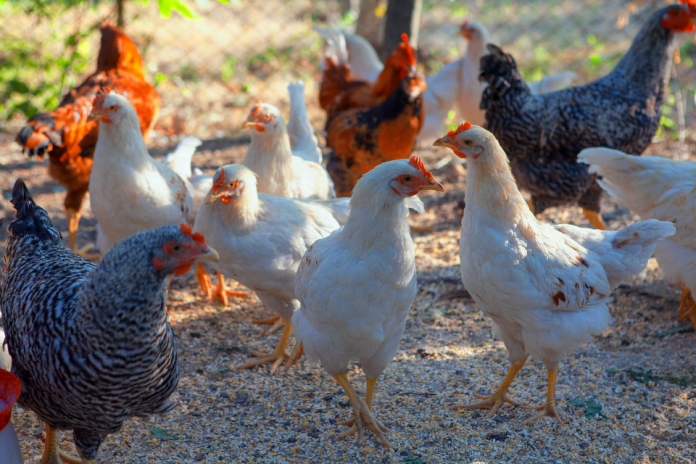Chief Veterinary Officers across the UK are encouraging poultry keepers to take action to reduce the risk of disease in their birds over the winter. The advice comes as part of the UK’s annual winter avian flu awareness campaign.
The UK is currently free of avian flu, but highly pathogenic avian influenza is causing outbreaks in Russia and Kazakhstan and as winter approaches the risk of migratory wild birds infecting domestic poultry will rise. It is therefore very important that poultry farmers and pet bird keepers take action to improve biosecurity.
There are some simple measures that all poultry keepers, whether they are running a large commercial farm, keeping a few hens in their back garden, or rearing game birds, should take to protect their birds against the threat of avian flu in the coming winter months.
These include:
- Keeping the area where birds live clean and tidy, controlling rats and mice and regularly cleansing and disinfecting any hard surfaces
- Cleaning footwear before and after visits
- Placing birds’ feed and water in fully enclosed areas that are protected from wild birds, and removing any spilled feed regularly
- Putting fencing around outdoor areas where birds are allowed and limiting their access to ponds or areas visited by wild waterfowl
- Where possible, avoid keeping ducks and geese with other poultry species.
A joint statement by the four Chief Veterinary Officers in the UK said:
“Avian flu is a constant threat to all poultry, and with winter approaching there will be an increasing risk of disease making its way into the UK from migrating birds. It is therefore important that all keepers of poultry, including game birds and pet birds, act now to reduce the risk of transmission of avian flu to their flocks.
“Enhanced biosecurity should be maintained at all times, including regularly cleaning and disinfecting the area where you keep birds and separating them from wild birds wherever possible.
“Poultry keepers across the UK are urged to remain vigilant and alert APHA in Great Britain or DAERA in Northern Ireland as soon as possible if they suspect any signs of the disease.”
Bird keepers across Great Britain should also register their birds on the Great Britain Poultry Register (GBPR). If you have 50 or more birds, this is a legal requirement. Keepers with fewer than 50 birds are also strongly encouraged to register. You should also let APHA know if the average number of birds you keep changes significantly.
In Northern Ireland, there is a legal requirement for all bird keepers to register their birds on the DAERA Bird Register.
Registering your birds means the Government can contact you in case of any disease outbreaks and provide information on the steps to take to limit the chances of your birds contracting disease.
Máire Burnett, Chair, UK Poultry Health & Welfare Group, said:
“As migratory birds return to winter in the UK, there is a risk they could bring avian influenza and infect the domestic wild bird population. I urge all poultry and gamebird keepers to ensure they have robust biosecurity measures in place to reduce the risk of disease and protect bird health and welfare.
“It is crucial that all keepers remain vigilant, and speak to their vet if they have any concerns about the health of their birds. Avian influenza poses a significant threat to the commercial poultry industry and risks huge economic disruption to international trade due to loss of ‘country freedom’ from avian influenza.”
Daniel Dring from PD Hook Hatcheries, said:
“Having had first-hand experience of avian influenza I know all keepers must maintain the highest standards of biosecurity to keep disease off a premises. The impact of avian influenza financially and on the people looking after their birds can be devastating; it is a very stressful time for all affected who have to deal with the culling of the birds and the cleaning of the farm afterwards.
“We can all do our part to control the risk of disease by preventing disease entering a premises through good biosecurity measures, such as dedicated on-farm clothing, thoroughly disinfecting all vehicles coming on to the farm, not sharing equipment with other farms, and ensuring disinfection rates are correct and checked. Limiting visitors is crucial, and using video technology can help with this. Good, robust, rodent control is essential.”
The UK was previously declared free of avian flu in September 2017 and has remained free of highly pathogenic avian influenza since then. However, a low pathogenic H5N3 strain of the disease, which poses no threat to human health, returned in December 2019 and was quickly dealt with by Government action. The UK declared itself free from avian influenza in June 2020.
The Government continues to monitor for incursions of avian flu and is working with the poultry and game bird industries; hen rehoming and pure and traditional poultry breeds stakeholders to help reduce the risk of disease.







